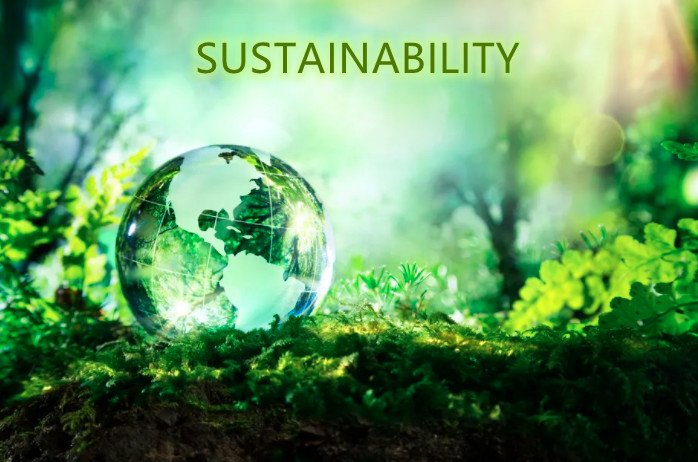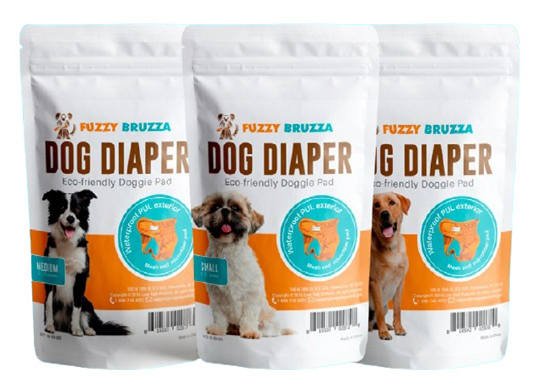What is Post Consumer Recycled (PCR) Pouch? Your Ultimate Guide
What is Post Consumer Recycled (PCR) Pouch?
Post-consumer recycled (PCR) pouches refer to packaging pouches that are made using materials derived from previously used consumer products, such as plastic bottles, containers, or other packaging. These materials are collected, processed, and then reprocessed into new packaging materials, reducing the need for virgin plastic production and helping to minimize environmental impact.
PCR pouches are part of the broader movement toward sustainability and reducing plastic waste. By using PCR materials, companies and manufacturers can contribute to a more circular economy by reusing existing plastics and reducing the demand for new plastic production. These pouches can be used for various products, ranging from food and beverages to personal care and household items.
Basically there are 2 types of PCR Pouches:
PCR PP Pouches
Currently PCR PE Pouches are widely using; it can be with high barrier function and mono material 100% recyclable PCR PE pouches. The PCR percentage can be from 1% to 100%.
This is the most sustainable packaging option: 100% recyclable mono material PCR PE Pouches.
Transaction Certificate is important in PCR PE Pouches.
10 Advantages of using Post Consumer Recycled (PCR) Pouches
Using post-consumer recycled (PCR) pouches offers several environmental and sustainability advantages. Here are some of the key benefits:
- Resource Conservation: PCR pouches reduce the demand for virgin plastic production, conserving valuable natural resources like petroleum and reducing the energy required to extract and process new plastic materials.
- Reduced Energy Consumption: The production of recycled materials generally requires less energy compared to producing new materials from scratch. Using PCR pouches helps lower the overall carbon footprint associated with plastic packaging.
- Waste Reduction: Incorporating post-consumer recycled materials into pouches diverts plastic waste from landfills and oceans, helping to address the global plastic pollution crisis.
- Lower Greenhouse Gas Emissions: As a result of reduced energy consumption and less reliance on fossil fuels, PCR pouches contribute to lower greenhouse gas emissions compared to conventional packaging.
- Closed-Loop System: By using PCR pouches, companies contribute to a more circular economy by creating a closed-loop system for plastic materials, where discarded plastics are collected, processed, and reused, minimizing the need for new plastic production.
- Consumer Appeal: Many environmentally conscious consumers prefer products with sustainable packaging, including PCR pouches. This can enhance a company’s brand image and appeal to a growing market segment seeking eco-friendly options.
- Regulatory Compliance: Some regions have regulations or incentives promoting the use of recycled materials and sustainable packaging. Using PCR pouches can help businesses comply with these regulations and demonstrate their commitment to sustainability.
- Innovation and Market Leadership: Adopting PCR pouches showcases a company’s commitment to innovation and environmental responsibility, potentially giving them a competitive edge in the market.
- Supporting Recycling Infrastructure: By creating demand for recycled materials, companies contribute to the development and growth of recycling infrastructure, making it more efficient and effective over time.
- Educational Impact: Using PCR pouches provides an opportunity for companies to educate consumers about recycling, sustainability, and the importance of responsible consumption.
It’s worth noting that while PCR pouches offer many advantages, there might also be some challenges, such as potential limitations in the availability of high-quality recycled materials, differences in physical properties compared to virgin plastics, and potential consumer perception concerns. Overall, the adoption of post-consumer recycled pouches aligns with broader efforts to create a more sustainable and environmentally friendly approach to packaging.

12 Applications of Post Consumer Recycled (PCR) Pouches
Post-consumer recycled (PCR) pouches can be used in a wide range of applications across various industries. Here are some examples of how PCR pouches can be employed:
- Food Packaging: PCR pouches can be used to package snacks, dry foods, condiments, sauces, and other food products. They provide a sustainable option for preserving and transporting food items while reducing the environmental impact.
- Beverage Packaging: PCR pouches can be utilized for packaging beverages such as juices, energy drinks, and even wine. They offer a lightweight and eco-friendly alternative to traditional beverage containers.
- Personal Care Products: PCR pouches can package items like shampoo, conditioner, body wash, lotions, and creams. These products benefit from PCR materials’ reduced environmental footprint and appeal to environmentally conscious consumers.
- Household Cleaning Products: Packaging for household cleaning products like detergents, disinfectants, and cleaning sprays can also utilize PCR pouches, contributing to sustainability efforts in the cleaning industry.
- Pet Food and Supplies: PCR pouches can be used to package pet food, treats, and other pet care products, catering to environmentally aware pet owners.
- Pharmaceuticals: Packaging for over-the-counter medications, vitamins, and supplements can benefit from the use of PCR pouches, aligning with sustainability goals in the pharmaceutical industry.
- Cosmetics: PCR pouches can package various cosmetics such as creams, lotions, makeup, and skincare products, offering a greener alternative in the beauty industry.
- Industrial and Hardware Products: PCR pouches can be employed for packaging small hardware items, tools, fasteners, and other industrial supplies, contributing to sustainable practices in the manufacturing sector.
- Promotional and Event Packaging: Brands and organizations can use PCR pouches for promotional items, event giveaways, and marketing materials, conveying a message of environmental responsibility.
- Retail and E-Commerce Packaging: PCR pouches can be used for packaging products sold in retail stores or online, appealing to environmentally conscious consumers who prefer sustainable packaging.
- Travel and Outdoor Products: PCR pouches can package travel-sized toiletries, outdoor adventure products, and other items meant for on-the-go use.
- Agricultural and Horticultural Products: PCR pouches can be used for packaging seeds, gardening supplies, and agricultural products, supporting sustainability efforts in the agriculture sector.
It’s important to note that the suitability of PCR pouches for a particular application may depend on factors such as the product’s characteristics, packaging requirements, and consumer preferences. As the demand for sustainable packaging continues to grow, more industries are exploring and adopting the use of post-consumer recycled materials in their packaging solutions.

what kind of bags can post consumer recycled materials make?
Post-consumer recycled (PCR) materials can be used to make a wide variety of bags, offering sustainable alternatives to traditional plastic bags. Here are some examples of bags that can be made using PCR materials:
Reusable Shopping Bags: PCR materials can be used to create sturdy and durable reusable shopping bags, reducing the need for single-use plastic bags and promoting eco-friendly shopping habits.
Tote Bags: Tote bags made from PCR materials are versatile and can be used for carrying groceries, books, personal items, and more.
Messenger Bags: PCR materials can be fashioned into stylish messenger bags suitable for daily use, providing a sustainable option for carrying belongings.
Backpacks: PCR materials can be used to create backpacks for school, work, travel, and outdoor activities, offering a greener alternative to traditional backpack materials.
Laptop Bags: Laptop bags made from PCR materials provide protection for electronic devices while supporting sustainability efforts.
Drawstring Bags: Drawstring bags made with PCR materials can be used for gym clothes, sports equipment, or as a lightweight backpack option.
Cosmetic Bags: PCR materials can be utilized to make cosmetic bags for storing makeup, skincare products, and other personal care items.
Duffel Bags: PCR materials can be used to manufacture duffel bags suitable for travel, sports, and weekend getaways.
Lunch Bags: PCR materials can create insulated lunch bags, helping to keep food fresh while reducing waste associated with disposable lunch packaging.
Wine Bags: PCR materials can be used to craft wine bags for carrying and gifting bottles of wine or other beverages.
Gift Bags: Sustainable gift bags made from PCR materials provide an eco-friendly option for packaging gifts for various occasions.
Promotional Bags: Companies and organizations can use PCR materials to create custom promotional bags for events, giveaways, and branding purposes.
Beach Bags: Beach bags made from PCR materials offer a durable and environmentally friendly option for carrying essentials to the beach or pool.
Diaper Bags: Diaper bags made with PCR materials provide a sustainable choice for parents on the go.
Pet Carriers: PCR materials can be used to create carriers for transporting pets, offering a greener solution for pet owners.
Outdoor Gear Bags: PCR materials can be used to make bags for camping, hiking, and outdoor adventures, contributing to sustainability in the outdoor industry.
Produce Bags: Small bags made from PCR materials can be used for storing fruits, vegetables, and bulk items at grocery stores, reducing the need for single-use plastic produce bags.
The versatility of PCR materials allows for creative design and manufacturing possibilities across various bag types. These bags not only offer functional utility but also contribute to environmental conservation by reducing plastic waste and promoting recycling.

What kind of Bag style of PCR PE Pouches?
Basically PCR PE laminated packaging can make all kinds of bags, the same as conventional materials.
Flat pouches
Spout pouches
3 side seal bag
Side gusset bag
Flat bottom pouch
Box bottom bag
Roll stock
Etc.
The best PCR PE Pouches manufacturer: Longdapac
Longdapac is the leading flexible packaging manufacturer from China since 1991. We focus on sustainable flexible packaging as you can see below:
Longdapac is the first high barrier MDO-PE film manufacturer in China and it is the first high barrier mono-material PE pouch manufacturer in China. ( MDO-PE / PE and MDO-PE / High barrier MDO-PE / PE)
With this materials, we can make recyclable stand pouch pouch, gusset bag, recyclable flat bottom pouch, flat pouch, etc.
Longdapac recyclable high barrier mono-material PE pouches can meet the recyclability of:
- CE FLEX in EU
- How2Recycle in USA
- SOFT PLASTIC in New Zealand
- REDcycle in Australia
Longdapac is a BRC and ISO certified factory with annual capacity of more than 25,000 tons.
And we are also a leading company of hevy duty PE open mouth bags and PE valve bags from 10kg, 25kg, to 70kg.
As leading flexible packaging companies in China, basically Longdapac can satisfy all your recyclable flexible packaging needs, both standard and high barrier.
FOR MORE INFORMATION ABOUT HIGH BARRIER MDO-PE FILM AND 100% RECYCLABLE HIGH BARRIER MONO-MATERIAL PE POUCHES, PLEASE CONTACT OUR TEAM TODAY.
